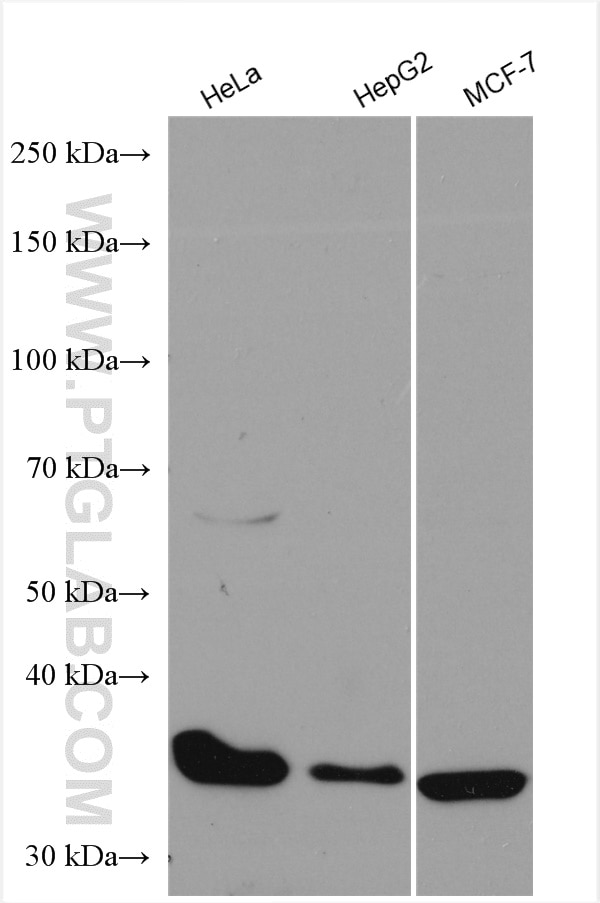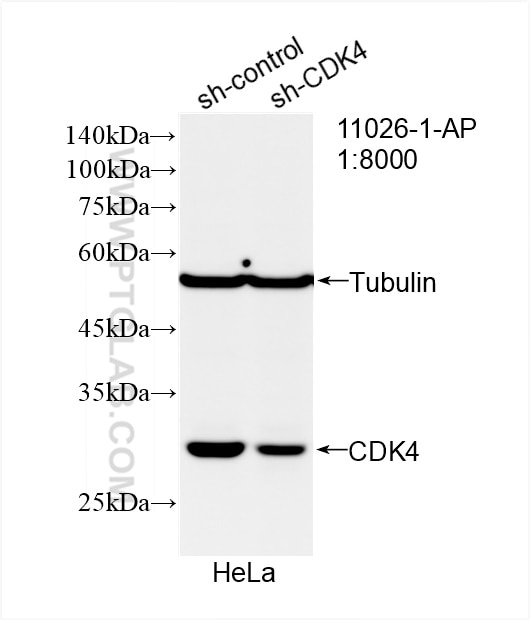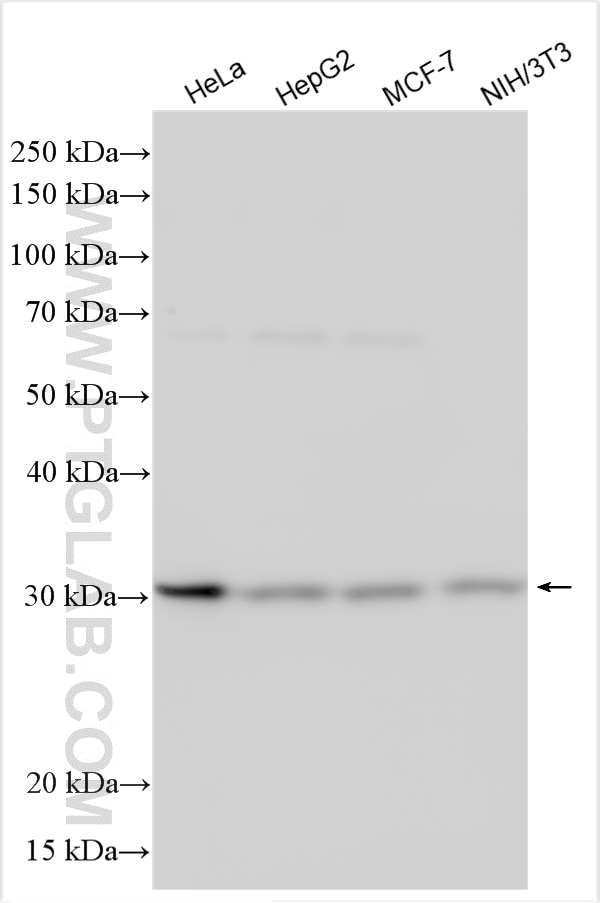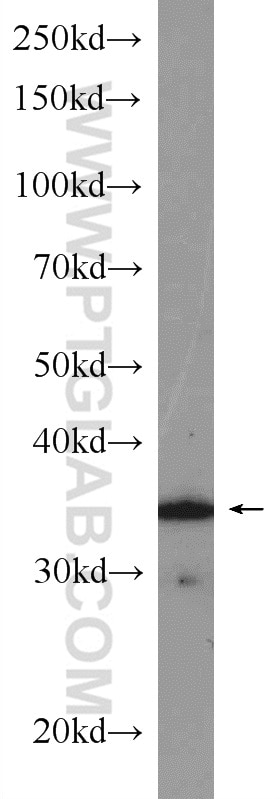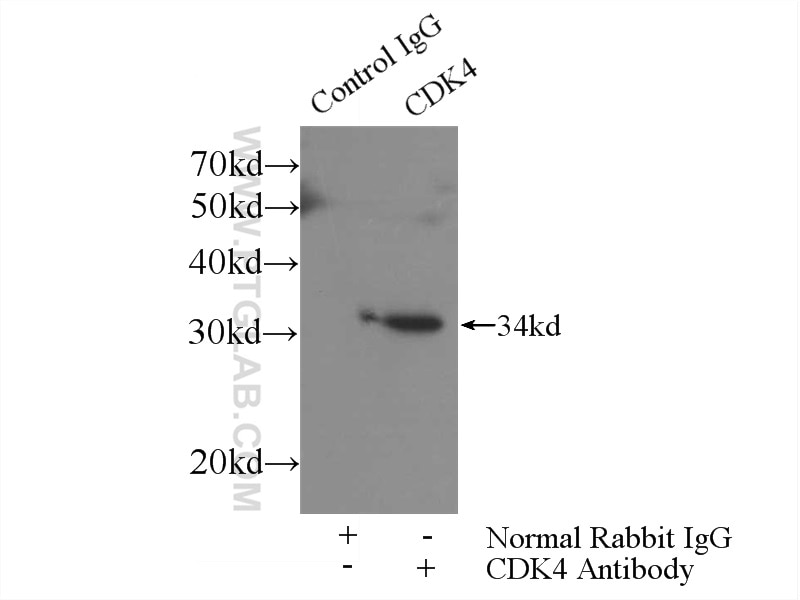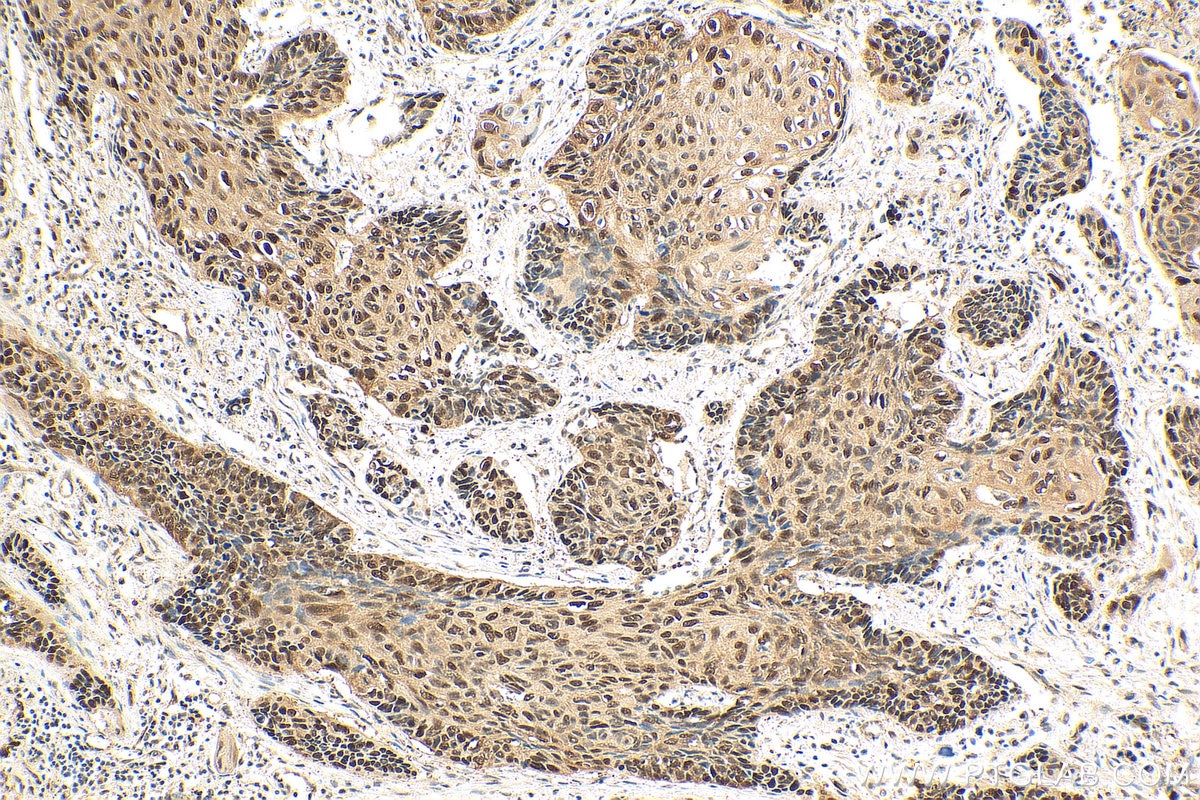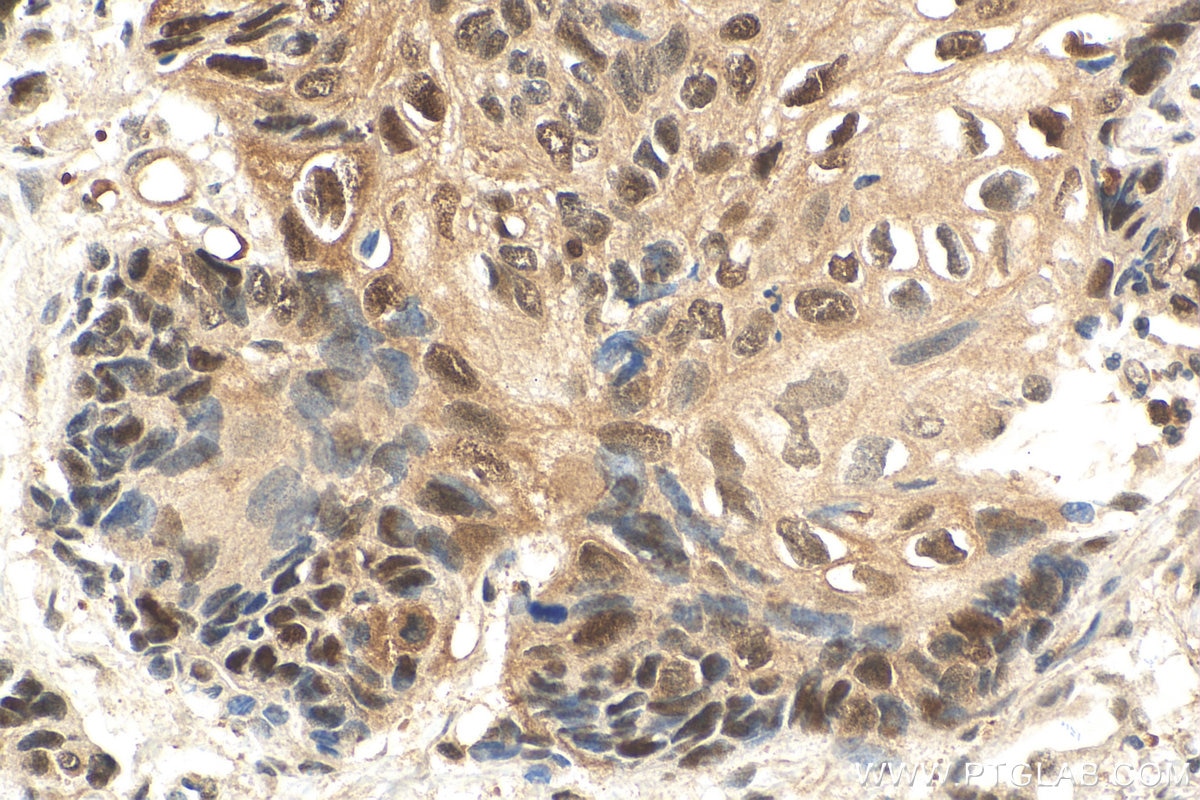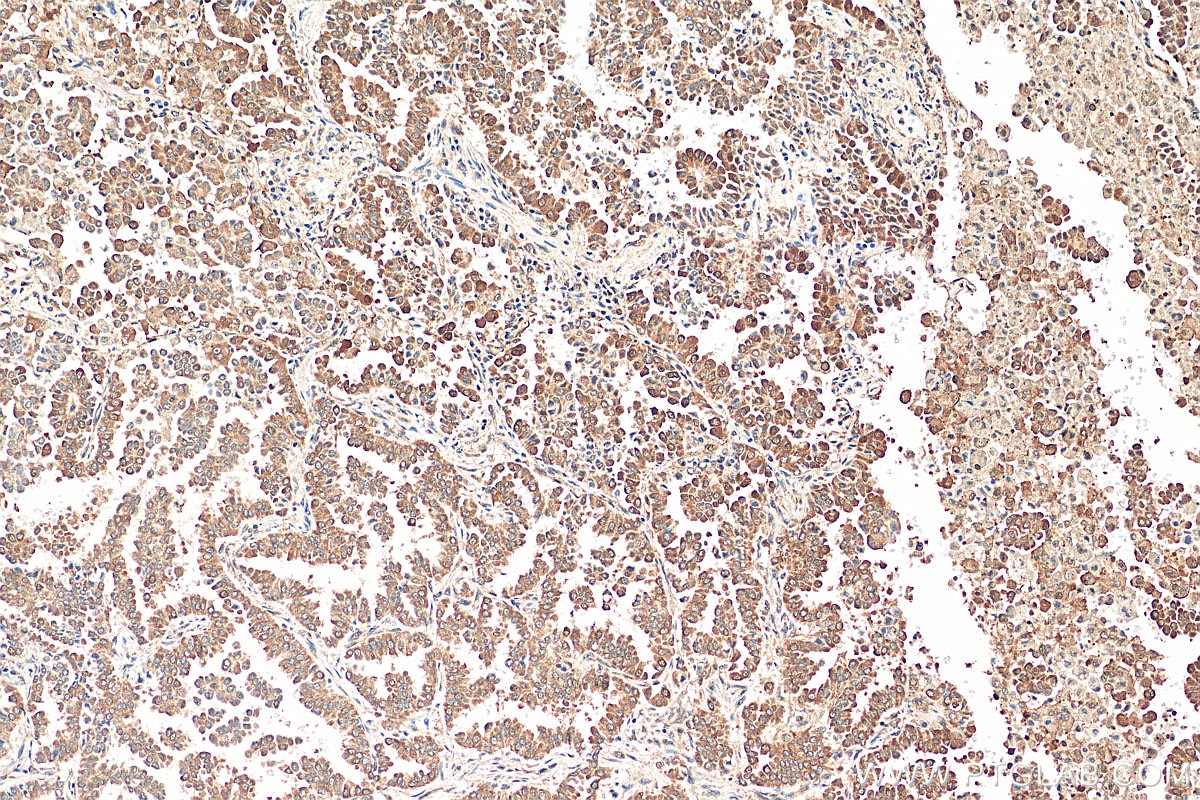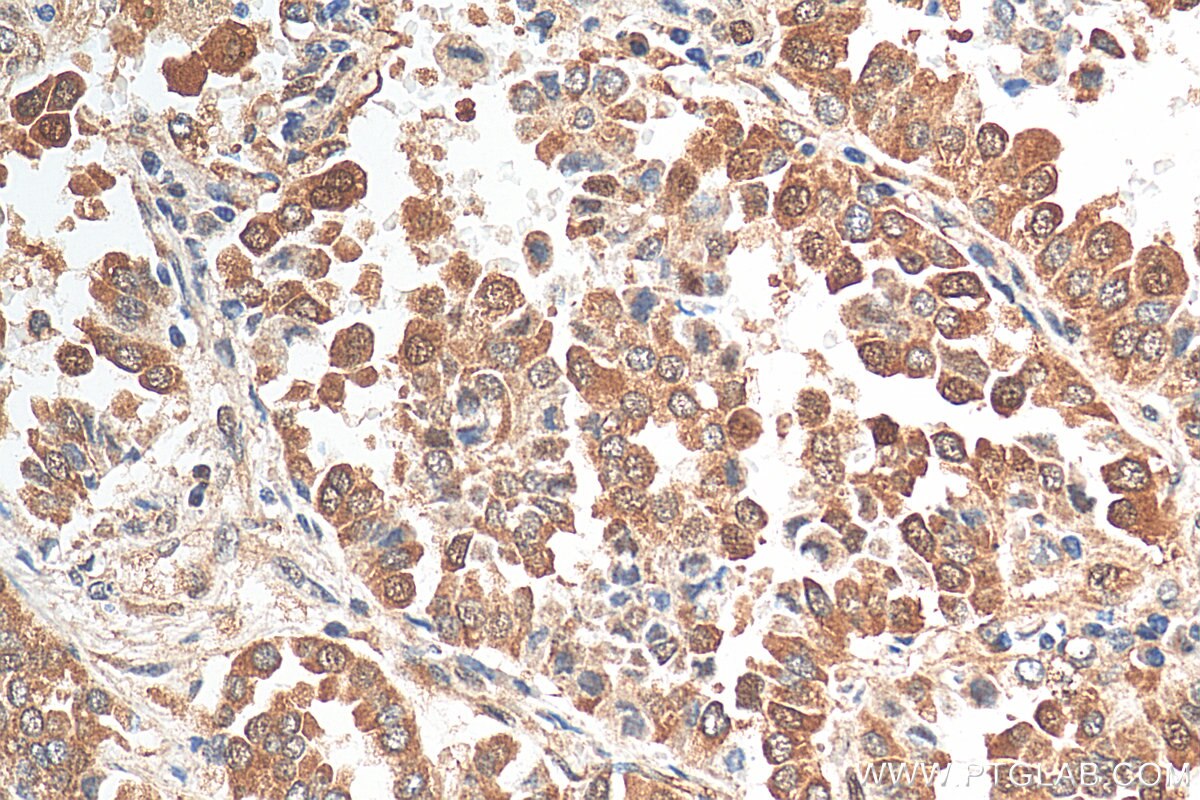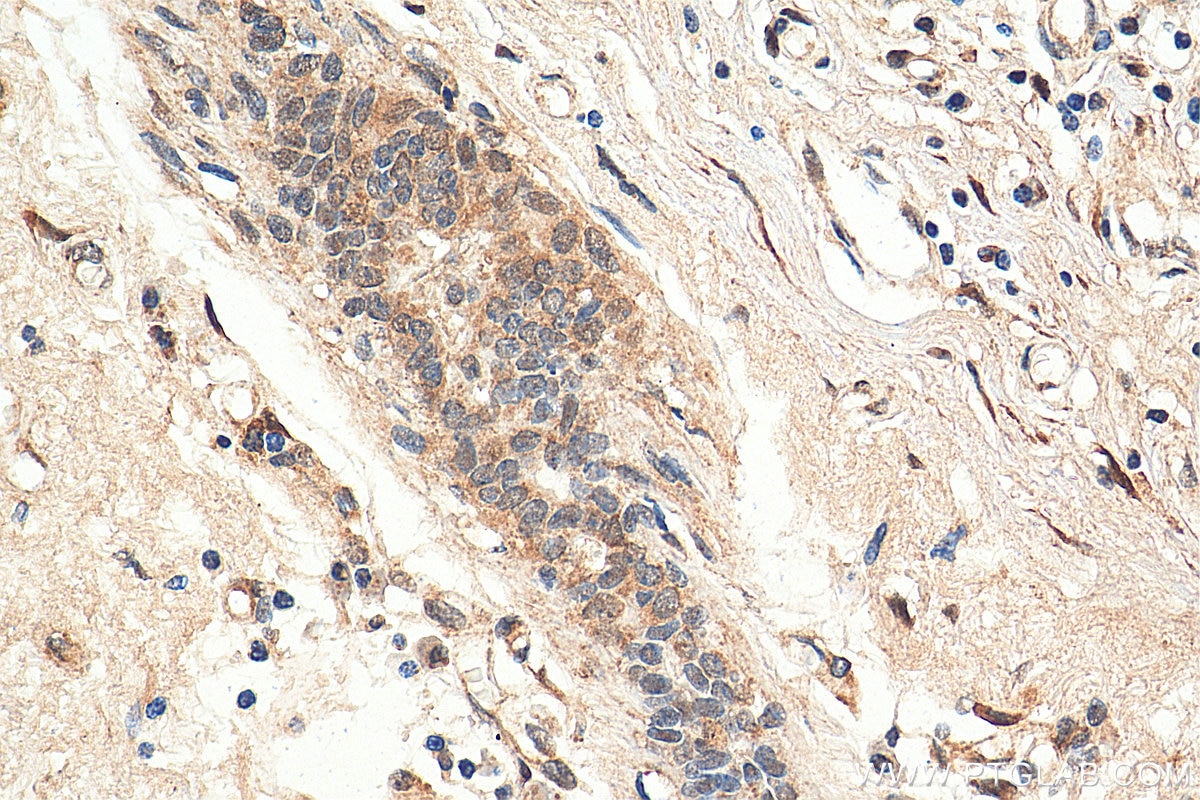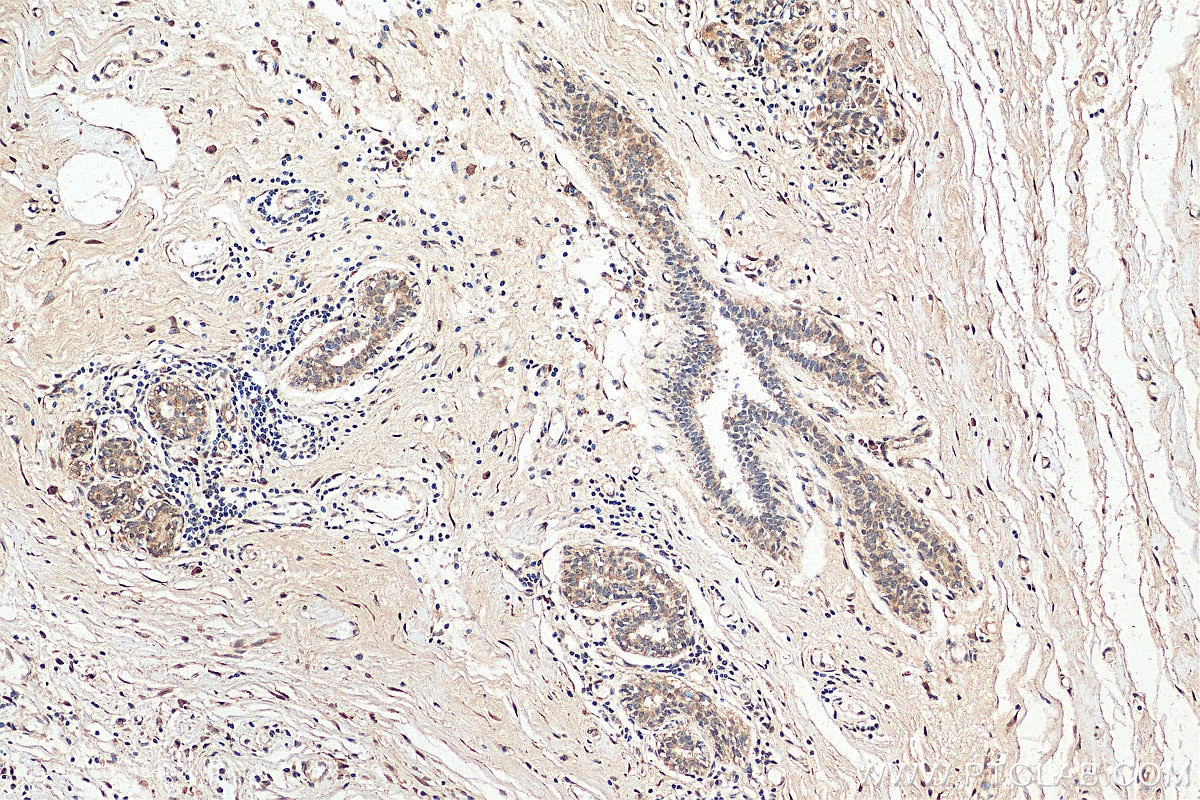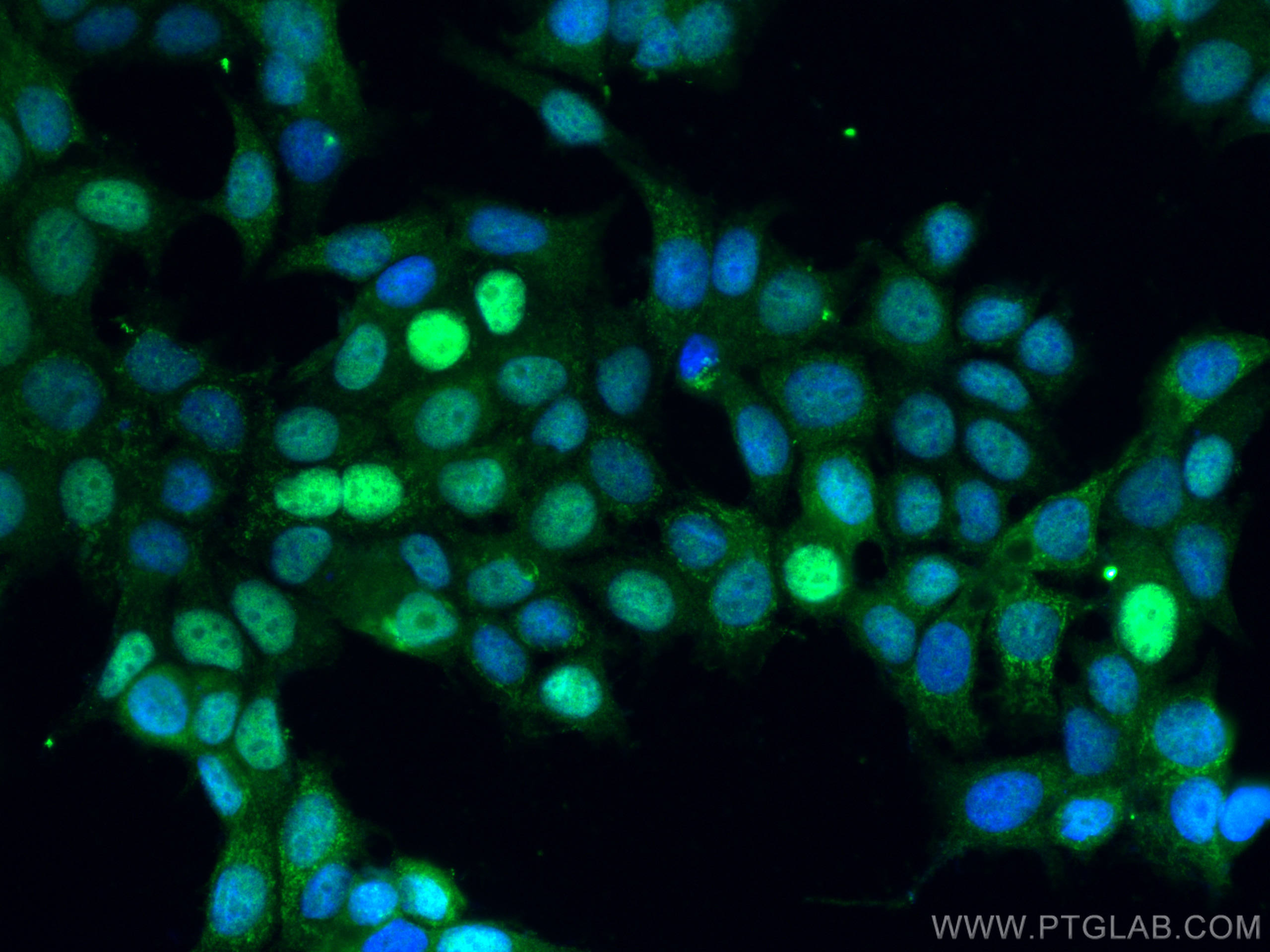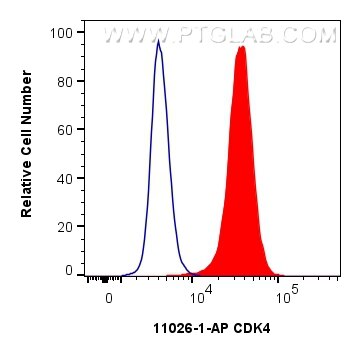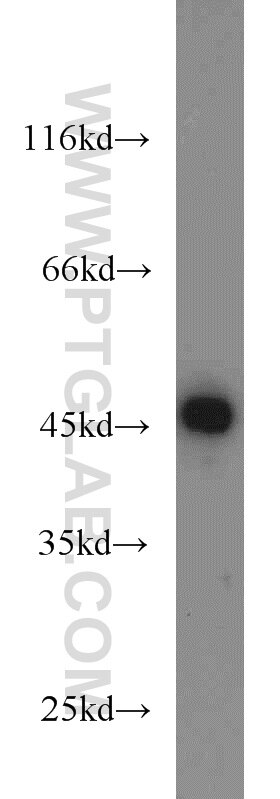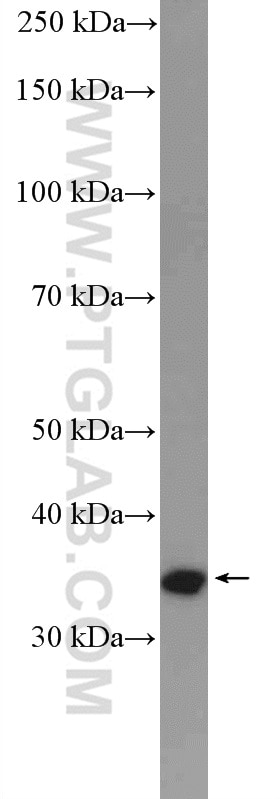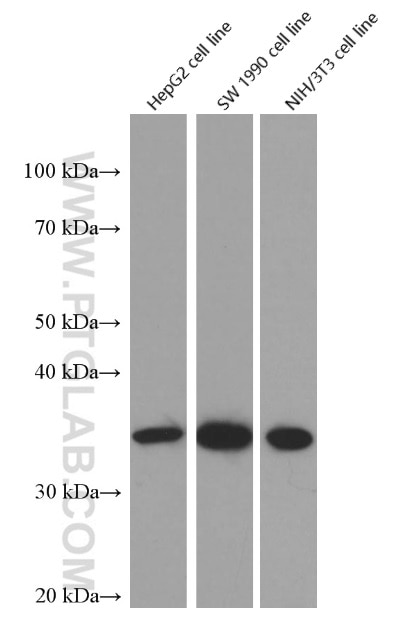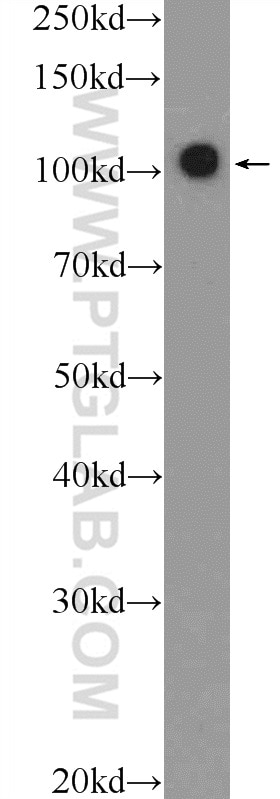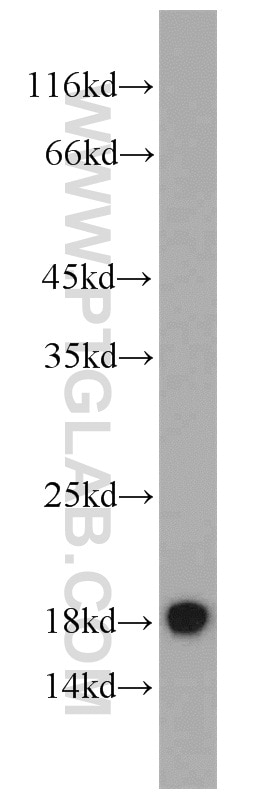- Featured Product
- KD/KO Validated
CDK4 Polyklonaler Antikörper
CDK4 Polyklonal Antikörper für WB, IHC, IF/ICC, FC (Intra), IP, ELISA
Wirt / Isotyp
Kaninchen / IgG
Getestete Reaktivität
human, Maus, Ratte und mehr (3)
Anwendung
WB, IHC, IF/ICC, FC (Intra), IP, CoIP, RIP, ELISA, Cell treatment
Konjugation
Unkonjugiert
Kat-Nr. : 11026-1-AP
Synonyme
Galerie der Validierungsdaten
Geprüfte Anwendungen
| Erfolgreiche Detektion in WB | HeLa-Zellen, HepG2-Zellen, MCF-7-Zellen, NIH/3T3-Zellen, Ratten-Pankreasgewebe |
| Erfolgreiche IP | HeLa-Zellen |
| Erfolgreiche Detektion in IHC | humanes Lungenkarzinomgewebe, humanes Mammakarzinomgewebe Hinweis: Antigendemaskierung mit TE-Puffer pH 9,0 empfohlen. (*) Wahlweise kann die Antigendemaskierung auch mit Citratpuffer pH 6,0 erfolgen. |
| Erfolgreiche Detektion in IF/ICC | MCF-7-Zellen |
| Erfolgreiche Detektion in FC (Intra) | MCF-7-Zellen |
Empfohlene Verdünnung
| Anwendung | Verdünnung |
|---|---|
| Western Blot (WB) | WB : 1:1000-1:8000 |
| Immunpräzipitation (IP) | IP : 0.5-4.0 ug for 1.0-3.0 mg of total protein lysate |
| Immunhistochemie (IHC) | IHC : 1:50-1:500 |
| Immunfluoreszenz (IF)/ICC | IF/ICC : 1:50-1:500 |
| Durchflusszytometrie (FC) (INTRA) | FC (INTRA) : 0.80 ug per 10^6 cells in a 100 µl suspension |
| It is recommended that this reagent should be titrated in each testing system to obtain optimal results. | |
| Sample-dependent, check data in validation data gallery | |
Veröffentlichte Anwendungen
| KD/KO | See 2 publications below |
| WB | See 370 publications below |
| IHC | See 26 publications below |
| IF | See 6 publications below |
| IP | See 3 publications below |
| CoIP | See 3 publications below |
| RIP | See 1 publications below |
Produktinformation
11026-1-AP bindet in WB, IHC, IF/ICC, FC (Intra), IP, CoIP, RIP, ELISA, Cell treatment CDK4 und zeigt Reaktivität mit human, Maus, Ratten
| Getestete Reaktivität | human, Maus, Ratte |
| In Publikationen genannte Reaktivität | human, Hausschwein, Hund, Maus, Ratte, Zebrafisch |
| Wirt / Isotyp | Kaninchen / IgG |
| Klonalität | Polyklonal |
| Typ | Antikörper |
| Immunogen | CDK4 fusion protein Ag1505 |
| Vollständiger Name | cyclin-dependent kinase 4 |
| Berechnetes Molekulargewicht | 34 kDa |
| Beobachtetes Molekulargewicht | 30-34 kDa |
| GenBank-Zugangsnummer | BC010153 |
| Gene symbol | CDK4 |
| Gene ID (NCBI) | 1019 |
| Konjugation | Unkonjugiert |
| Form | Liquid |
| Reinigungsmethode | Antigen-Affinitätsreinigung |
| Lagerungspuffer | PBS mit 0.02% Natriumazid und 50% Glycerin pH 7.3. |
| Lagerungsbedingungen | Bei -20°C lagern. Nach dem Versand ein Jahr lang stabil Aliquotieren ist bei -20oC Lagerung nicht notwendig. 20ul Größen enthalten 0,1% BSA. |
Hintergrundinformationen
Cyclin-dependent kinase-4 (CDK4) is a protein-serine kinase involved in the cell cycle. It is essential for the G1- to S-phase transition during the cell cycle and its expression is primarily controlled at the transcriptional level(PMID:17253961). CCND1-CDK4 axis is not only critical in glial tumor cells but also in stromal-derived cells in the surrounding tumor microenvironment that are vital to sustain tumor outgrowth(PMID:21844184).
Protokolle
| Produktspezifische Protokolle | |
|---|---|
| WB protocol for CDK4 antibody 11026-1-AP | Protokoll herunterladen |
| IHC protocol for CDK4 antibody 11026-1-AP | Protokoll herunterladen |
| IF protocol for CDK4 antibody 11026-1-AP | Protokoll herunterladen |
| IP protocol for CDK4 antibody 11026-1-AP | Protokoll herunterladen |
| Standard-Protokolle | |
|---|---|
| Klicken Sie hier, um unsere Standardprotokolle anzuzeigen |
Publikationen
| Species | Application | Title |
|---|---|---|
Mol Cell METTL1-mediated m7G modification of Arg-TCT tRNA drives oncogenic transformation. | ||
Mol Cancer The circACTN4 interacts with FUBP1 to promote tumorigenesis and progression of breast cancer by regulating the expression of proto-oncogene MYC. | ||
Nat Commun CDK5-dependent phosphorylation and nuclear translocation of TRIM59 promotes macroH2A1 ubiquitination and tumorigenicity. | ||
Nat Commun Identification of predictors of drug sensitivity using patient-derived models of esophageal squamous cell carcinoma. | ||
J Pineal Res Mitochondrial cytochrome P450 (CYP) 1B1 is responsible for melatonin-induced apoptosis in neural cancer cells. | ||
Cancer Res CDK4/6 inhibition enhances oncolytic virus efficacy by potentiating tumor-selective cell killing and T cell activation in refractory glioblastoma.
|
